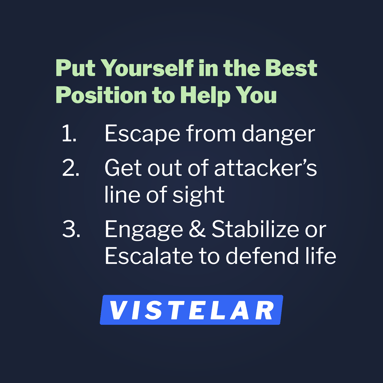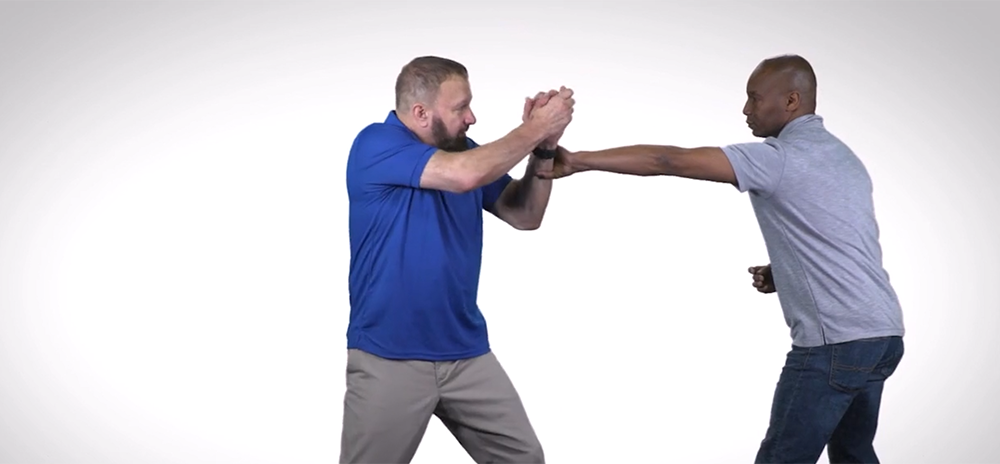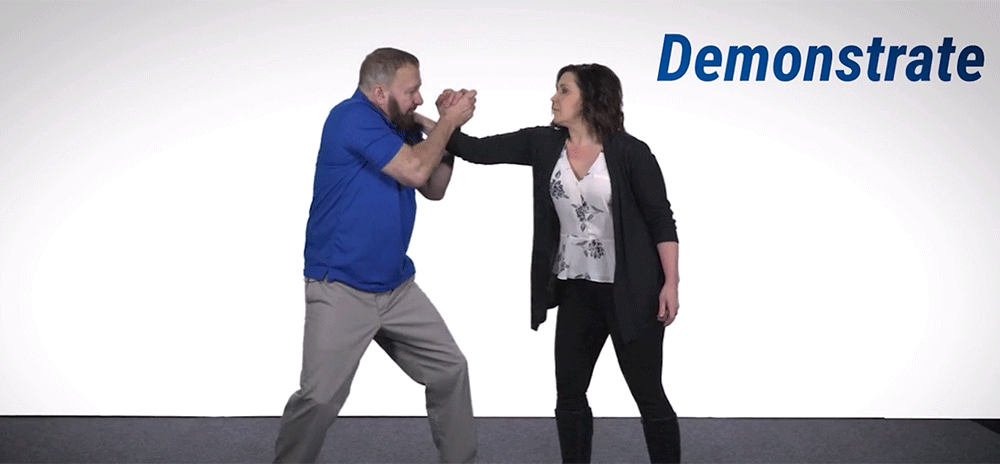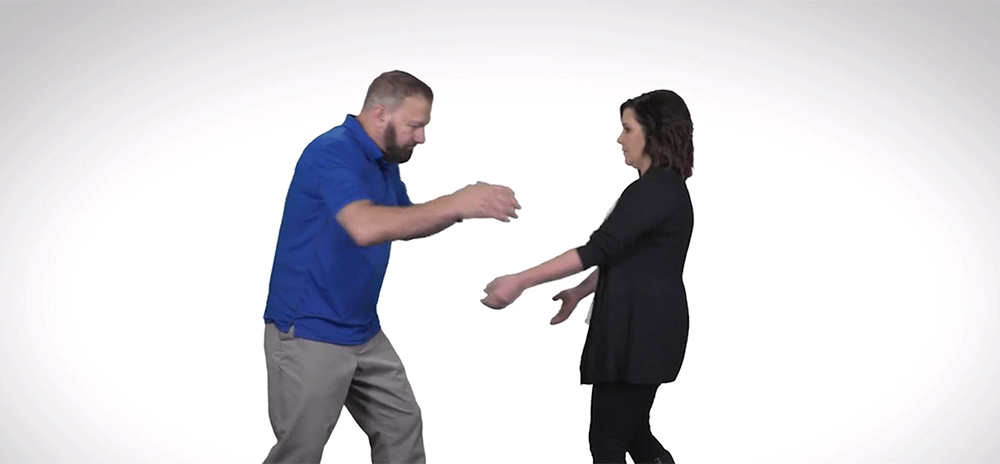While attending a class on self-defense or personal safety, have you ever heard someone say, “Hey, you attacked me the wrong way!”
Over the last 30 plus years, I have attended and conducted many training classes on personal safety and self-defense. Personal safety starts with everything you need to know before the attack takes place such as distance, positioning, exit strategies, escape routes, and other factors that will help avoid or better manage the actual contact. Self-defense is the physical action you will take when your personal safety is being compromised, however, personal safety starts long before the need for "punches or kicks".
Imagine if someone could teach you one physical technique that could be applicable in a variety of situations. This means learning only one move that can keep you safe and help you escape from common grips, grabs, body holds, and even chokes. Would it be something you would be interested in learning?
As I travel around the country teaching others how to be safe, one question comes up repeatedly: “What is the best technique for …?” Then, the person adds their biggest concern based on their age and experiences to the end of that question.
The "Best" Technique
Actually, I often start out my classes by asking the students the same type of question: What is the best technique for getting away from a grip or grab, getting away from somebody who has you on the ground, or the best technique for blocking a punch, etc.?
First, we need to define the word best. If you were to ask 10 of your closest friends what the word best means, you will often get responses like: the ultimate, superior, better than the rest. However, for this application, the definition should also include:
- The best technique is easy to remember under stress. It is important that your techniques can be taught within three steps or less. Otherwise under stressful conditions, your students will not remember it.
- The best technique can be performed in any environment such as standing, lying on the ground, or even sitting in a chair.
- The best technique can be performed with either the right or left hand and is not two hand dependent, which means needing both hands in order to be effective.
- The best technique is one that can be performed within your own physical and emotional limitations.
When evaluating a technique, ask yourself, can it be performed in real time? You can choreograph anything to be successful in training, but will it work in the real world? A technique that only works under certain conditions is really not a technique at all. It is more like buying tickets to a movie you are never going to see. Have you ever observed someone in a training session use an ineffective defensive technique and then blame the ineffectiveness on the attacker? I have heard the comment, “You attacked me wrong!” many times over the years– but that excuse will mean nothing in real life - when your life will depend on your training the most.
The Apex Defense is not only a technique you can use in any situation, but it is also the best technique to use.
Apex Defense How-to
Bring both your hands up to eye level and clap them together. Interlock your thumbs over the top of each other as you look at them. Raise your clasped hands just high enough to see underneath them at the threat. Bring your forearms to the front and center reinforcing the apex.
For example, when a person grabs your wrist with one or both of their hands, you are going to do a few things simultaneously. Flex your wrist by extending your fingers outward, rotate your thumb up, step forward, clap and spin. Just clap and spin, that is all you need to do. Spin in a 360-degree motion away from their free hand.
If they grabbed you with both hands, you could spin to either direction right or left, so you end up behind the person. We want to make sure we put ourselves in the best position of advantage to do one of three things.
person. We want to make sure we put ourselves in the best position of advantage to do one of three things.
- First, of course, is to escape from danger and get out of the immediate area.
- Second, this position gets us out of the attacker’s immediate line of sight.
- Last, this puts us in a good position if we choose to stay engaged and stabilize our attacker or escalate to defend our life.
Getting behind the attacker places you in a position of advantage. Often, when I see people attempt to get away from attacks, the techniques they utilize keep them in front of the attacker and susceptible to another attack.
When they grab one or both of your shoulders, or they grab your shirt, step forward. Stepping forward during an attack takes away movement and the ability for an attacker to quickly adjust – when you step back you give them more time. Bring your hands above their wrist and clap.
This is the Apex Defense. Now, you spin in the opposite direction of their free hand. Again, if they grab you with both hands, spin any way you like. By doing this you will end up behind them to enable you to do one of the three things mentioned above. You can also use the Apex Defense when a person tries to choke you with one or both hands. First, you must protect your airway by applying a turtle shell technique. Then, step forward, bring your hands up above their wrist, and clap.
Once you have applied the Apex Defense, you spin in a 360-degree motion away from the opposite hand. If they use both hands, spin either direction. Either way, the goal is to get behind them to be in a better position of advantage.
We developed the Apex Defense System to address the one common problem from any training program in the country. We kept it simple so you will remember what to do when you need to do it. The Apex Defense is as simple as we can get—just clap and spin!
Watch the video below to see the Apex in action:









